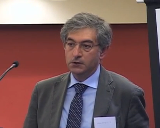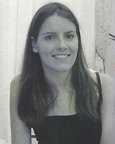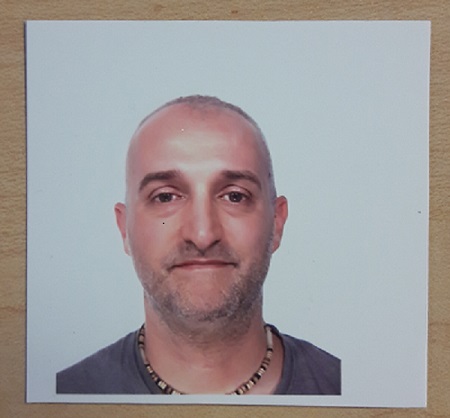Studying at the University of Verona
Here you can find information on the organisational aspects of the Programme, lecture timetables, learning activities and useful contact details for your time at the University, from enrolment to graduation.
Academic calendar
The academic calendar shows the deadlines and scheduled events that are relevant to students, teaching and technical-administrative staff of the University. Public holidays and University closures are also indicated. The academic year normally begins on 1 October each year and ends on 30 September of the following year.
Course calendar
The Academic Calendar sets out the degree programme lecture and exam timetables, as well as the relevant university closure dates..
| Period | From | To |
|---|---|---|
| Sem. 1A | Sep 21, 2020 | Oct 31, 2020 |
| Sem. 1B | Nov 9, 2020 | Jan 9, 2021 |
| Sem. 2A | Feb 15, 2021 | Apr 1, 2021 |
| Sem. 2B | Apr 14, 2021 | May 29, 2021 |
| Session | From | To |
|---|---|---|
| Sessione d'esame invernale | Jan 14, 2021 | Feb 13, 2021 |
| Sessione d'esame estiva | Jun 7, 2021 | Jul 24, 2021 |
| Sessione d'esame autunnale | Aug 23, 2021 | Sep 18, 2021 |
| Session | From | To |
|---|---|---|
| Sessione di laurea estiva | Jul 5, 2021 | Jul 10, 2021 |
| Sessione di laurea autunnale | Nov 8, 2021 | Nov 13, 2021 |
| Sessione di laurea invernale | Mar 28, 2022 | Apr 1, 2022 |
| Period | From | To |
|---|---|---|
| Festa di Ognissanti | Nov 1, 2020 | Nov 1, 2020 |
| Festa dell'Immacolata | Dec 8, 2020 | Dec 8, 2020 |
| Vacanze di Natale | Dec 24, 2020 | Jan 6, 2021 |
| Vacanze di Pasqua | Apr 2, 2021 | Apr 6, 2021 |
| Festa della liberazione | Apr 25, 2021 | Apr 25, 2021 |
| Festa del lavoro | May 1, 2021 | May 1, 2021 |
| Festa del Santo Patrono | May 21, 2021 | May 21, 2021 |
| Festa della Repubblica | Jun 2, 2021 | Jun 2, 2021 |
| Vacanze estive | Aug 9, 2021 | Aug 15, 2021 |
Exam calendar
Exam dates and rounds are managed by the relevant Humanistic Studies Teaching and Student Services Unit.
To view all the exam sessions available, please use the Exam dashboard on ESSE3.
If you forgot your login details or have problems logging in, please contact the relevant IT HelpDesk, or check the login details recovery web page.
Should you have any doubts or questions, please check the Enrollment FAQs
Academic staff
 gaia.cetrano@univr.it
gaia.cetrano@univr.it
 giorgia.decarli@univr.it
giorgia.decarli@univr.it
 annamaria.giarola@univr.it
annamaria.giarola@univr.it
 antonio.nocera@univr.it
antonio.nocera@univr.it
 luciano.pasqualotto@univr.it
luciano.pasqualotto@univr.it
 antonella.salvan@univr.it
antonella.salvan@univr.it
 carlo.soregotti@univr.it
carlo.soregotti@univr.it
 giorgio.zoccatelli@univr.it
giorgio.zoccatelli@univr.it
Study Plan
The Study Plan includes all modules, teaching and learning activities that each student will need to undertake during their time at the University.
Please select your Study Plan based on your enrollment year.
1° Year
| Modules | Credits | TAF | SSD |
|---|
2° Year activated in the A.Y. 2021/2022
| Modules | Credits | TAF | SSD |
|---|
3° Year activated in the A.Y. 2022/2023
| Modules | Credits | TAF | SSD |
|---|
1 module between the following| Modules | Credits | TAF | SSD |
|---|
| Modules | Credits | TAF | SSD |
|---|
| Modules | Credits | TAF | SSD |
|---|
1 module between the followingLegend | Type of training activity (TTA)
TAF (Type of Educational Activity) All courses and activities are classified into different types of educational activities, indicated by a letter.
Social and community psychology - PSICOLOGIA SOCIALE E DEI GRUPPI (2021/2022)
Teaching code
4S02341
Teacher
Credits
6
Language
Italian
Scientific Disciplinary Sector (SSD)
M-PSI/05 - SOCIAL PSYCHOLOGY
Period
Sem. 1A dal Sep 27, 2021 al Nov 6, 2021.
To show the organization of the course that includes this module, follow this link: Course organization
Learning outcomes
This module offers an introduction to Social Psychology, its areas of interest, and main theories, with particular reference to social influence processes in interpersonal and intergroup interactions and to how they affect social behavior and individual well-being. The first aim of the module is to provide students with knowledge and understanding of the main theories and constructs in Social Psychology, with particular reference to theoretical concepts that can be most frequently applied to social workers' workplace. A second aim is to provide students with knowledge and understanding of factors that promote the stability or change of social hierarchies. Furthermore, the module aims at developing students' ability to apply key socio-psychological concepts to the professional context, in order to understand the personal, family-related and social antecedents of users’ behaviors and to place users’ difficulties within the social and relational context in which they live.
Program
The course will deal with three broad thematic areas centered on each other:
1. the social perception
2. social influence
3. social relations
These aspects represent the "What" social psychologists study. We will deal with how individuals perceive each other, influence each other and relate to each other.
1. Social perception is how we come to know and understand the fundamental elements of our social world, which is made up of both individuals and social groups. During the discussion of social perception, while emphasizing the role of cognitive processes, we will reiterate the idea that all cognition is socially influenced, even those cognitions as personal and basic as the perception of oneself.
2. Social influence is the effect that each of us has on others. Each of us constantly influences the others and is constantly influenced by them. Attitudes and modification of the same: advertising targets our wallet, political campaigns play on our fears, debates appeal to our reason. Can they change our opinions? If so, how? Attitudes and behaviors: In the presence of adequate circumstances, attitudes reflect and guide behavior. We will see the mutual influence of attitudes and behaviors. Groups, norms and conformism: we will examine how groups reach an agreement and why that agreement has disruptive effects on group members. Norms and behavior: the effects of groups not just on what people think, but on what they do.
3. Social relationships are the bonds that bind us to each other, as individuals and as groups. United by attraction and cooperation or imprisoned in aggression and conflict, individuals find in the relationship with others a source of affection and solidarity or indifference and hostility. Love and sympathy: we will see the feelings of attraction towards others and the formation and development of relationships of intimacy and affection. We will also see what social psychology can tell us about why relationships evolve positively or negatively. Interaction within groups: small groups make society work. We will see how we interact with others within small groups and how the groups work to achieve common goals. Aggression and conflict: we will analyze the path of conflicts that place individual against individual and group against group: how they can arise, intensify and, at times, be resolved. Altruism and cooperation: episodes of heroism pushed to the point of self-denial or simpler acts of collaboration for the benefit of others: why do they occur? We will examine the conditions under which we help people and the reasons why we do so.
Some of the main topics:
- social perception;
- social categorization, prejudices and stereotypes;
- self, personal and social identity;
- attitudes and persuasion;
- aggression;
- communication;
- prosocial behavior;
- social influence in groups;
- intergroup relations and discrimination.
The module aims to foster the ability to apply the concepts of Social Psychology acquired to the professional reality of the social worker, in particular to understand the causes of the users' social behaviors and to place the criticalities detected regarding their users in the social context and relational.
Textbook: as an alternative to the suggested text, it will be possible to agree with the teacher a manual of Social Psychology that can be used to study the topics of the course.
Bibliography
Examination Methods
At the end of the module there will be a written exam aimed at ascertaining the achievement of the educational objectives and the knowledge of the topics covered during the lessons, to be explored in a manual of Social Psychology. The outcome of the "Social and Community Psychology" exam will consist of a single mark (average of the evaluations of the two questions of Social Psychology and of the two questions of Community Psychology, expressed out of thirty) which will be recorded once both are passed the modules in the same exam session. Students of the academic year 2020-21 (and earlier) who still have to take the exam can take it with the program for their year of study. In relation to the situation arising from the Coronavirus emergency, the examination methods listed above may be changed (oral examination in electronic mode) in accordance with the instructions of the university.
Type D and Type F activities
Modules not yet included
Career prospects
Module/Programme news
News for students
There you will find information, resources and services useful during your time at the University (Student’s exam record, your study plan on ESSE3, Distance Learning courses, university email account, office forms, administrative procedures, etc.). You can log into MyUnivr with your GIA login details: only in this way will you be able to receive notification of all the notices from your teachers and your secretariat via email and soon also via the Univr app.
Student mentoring
Linguistic training CLA
Gestione carriere
Practical information for students
Documents
| Title | Info File |
|---|---|
|
|
pdf, it, 325 KB, 02/05/23 |
|
|
pdf, it, 212 KB, 02/05/23 |
|
|
pdf, it, 131 KB, 02/05/23 |
Graduation
Documents
| Title | Info File |
|---|---|
|
|
pdf, it, 99 KB, 13/10/23 |
|
|
pdf, it, 101 KB, 10/04/24 |
List of theses and work experience proposals
| theses proposals | Research area |
|---|---|
| Proposta tesi | Various topics |
Assistente Sociale
Comune e Università di Verona collaborano per la formazione alla professione di assistente sociale.
Professione Assistente Sociale
Pagina aggiornata il 18/1/2022
Stage e Tirocini
Le attività̀ di tirocinio degli studenti si svolgono presso strutture esterne, convenzionate con l’Università degli Studi di Verona ai sensi delle vigenti disposizioni in materia. Nelle strutture esterne gli studenti svolgono le attività di tirocinio sotto la responsabilità di un assistente sociale (Tutor-supervisore), appartenente a dette strutture, coordinato a sua volta dal responsabile del tirocinio presso il Corso di Studio.
In assenza di un assistente sociale, operante nella struttura esterna, il Collegio didattico, per quanto di competenza, decide, su proposta dei responsabili del tirocinio, in ordine alle condizioni per l’effettuazione o la prosecuzione delle attività di tirocinio degli studenti interessati. Le attività di tirocinio sono obbligatorie per almeno 450 ore.
Il Collegio didattico, in deroga alle disposizioni del presente articolo, può consentire a studenti che si trovino in particolari condizioni, in specie se disabili, lavoratori o impegnati in organismi collegiali dell’Università degli Studi di Verona, di non ottemperare in parte all’obbligo di frequenza alle attività di tirocinio, predisponendo forme alternative di tirocinio, anche tramite supporti telematici e multimediali interattivi.
I responsabili delle attività di tirocinio presso il Corso di Studio, anche avvalendosi di appositi collaboratori o tutori esterni, accertano la presenza degli studenti presso le rispettive strutture. A tal fine utilizzano un apposito libretto di frequenza per ciascuno studente.
Al termine dell’attività di tirocinio, lo studente deve presentare una relazione scritta al responsabile di tale attività presso il Corso di Studio. Lo studente elabora la relazione scritta, controfirmata dal Tutor-supervisore. La relazione finale viene valutata dal responsabile del tirocinio presso il Corso di Studio e deve tenere conto degli obiettivi prefissati dal Collegio didattico.
La valutazione viene attribuita al tirocinio nel seguente modo: sufficiente = 1; buono = 2; ottimo = 3; eccellente = 4 e verrà aggiunta alla media dei voti del curriculum al momento della discussione della tesi.
Gli Uffici della Direzione Didattica e Servizi agli Studenti predispongono la documentazione necessaria allo svolgimento delle attività̀ di tirocinio, comprese attestazioni e certificazioni.
Nel caso in cui lo studente partecipi a programmi di mobilità internazionale, le attività̀ di tirocinio vengono regolamentate come segue:
A – Lo studente svolge il Tirocinio presso la sede estera.
Se lo studente svolge il Tirocinio all’estero si ritengono assolti gli obbligo relativi al Laboratorio se:
- - lo studente aggiorna il proprio docente/tutor con brevi relazioni mensili da inviare mezzo mail, sull’andamento del lavoro svolto presso la sede estera;
- - produce una relazione finale completa del tirocinio svolto.
La valutazione finale del laboratorio di guida al tirocinio sarà̀ effettuata da parte del tutor del laboratorio sulla base della relazione dello studente tenendo conto della eventuale valutazione da parte del supervisore estero.
B – Lo studente non svolge il Tirocinio presso la sede estera.
Se lo studente non svolge il Tirocinio nella sede estera e lo deve fare al rientro:
lo studente effettua uno/due incontri individuali iniziali con il docente/tutor in cui predisporre quanto necessita per l’avvio del tirocinio e nei quali verranno forniti materiali, griglie ed eventuali testi di riferimento;
invia brevi relazioni mensili sull’andamento del tirocinio che sarà svolto in Italia al di fuori del periodo in cui si tiene il laboratorio di guida al tirocinio;
produce la relazione finale completa del tirocinio svolto”.
- Tutte le informazioni in merito agli stage per futuri studenti sono disponibili alla pagina Stage e tirocini.
- Tutte le informazioni in merito agli stage per studenti iscritti sono pubblicate in MyUnivr - come fare per - stage e tirocini.
- Tutte le informazioni in merito agli stage per le aziende sono disponili alla pagina Stage e tirocini per azienze.

 045 8124930
045 8124930




























